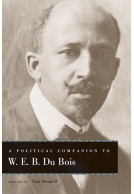The Russian Bureau (Paperback)
A Case Study in Wilsonian Diplomacy
Imprint: University Press of Kentucky
Pages: 216
Illustrations: Illus
ISBN: 9780813152882
Published: 15th July 2014
Script Academic & Professional
Pages: 216
Illustrations: Illus
ISBN: 9780813152882
Published: 15th July 2014
Script Academic & Professional
This book will be reprinted and your order will be released in due course.
You'll be £18.00 closer to your next £10.00 credit when you purchase The Russian Bureau. What's this?
+£4.99 UK Delivery or free UK delivery if order is over £40
(click here for international delivery rates)
Need a currency converter? Check XE.com for live rates
(click here for international delivery rates)
Need a currency converter? Check XE.com for live rates
The American position on Russia during the First World War was defined by the same idealism that guided our relations with other countries. Woodrow Wilson and American leaders had hailed the Revolution of March 1917 as an expression of the true spirit of Russia, a harbinger of democracy. The Bolshevik revolt and the civil war that followed were, in their eyes, only temporary disturbances. Still, the growth of the new democracy would only prosper if the Russians could restore order to their beleaguered land.
In this book Linda Killen examines a hitherto neglected instrument of American policy in Russia-the Russian Bureau of the War Trade Board. With support from the administration, the bureau was established by Congress in October 1918 as a public corporation with a fund of $5 million to facilitate trade between Russia and America, for government and business leaders thought that the Russians could be helped to resolve their problems with the income from trade. The bureau was also to assist in two areas essential to trade, stabilizing the currency and restoring the transportation system. With the signing of the peace treaty, however, the bureau as a wartime agency was dissolved in June 1919 and its work assigned to the State Department.
As one of the first American attempts at foreign aid, the bureau's program was necessarily tentative, but Linda Killen shows that, as a specific case, the bureau offers an instructive example. It reveals a widespread ignorance of Russian affairs both in government and in business circles. More importantly, it demonstrates the fatal weakness of an idealistic policy that was blind to political realities. Perhaps, the bureau's most tangible "accomplishment" came when its $5 million were finally transferred to the Trans-Siberian Railroad to purchase new equipment. Yet, ironically, it was the hated Bolsheviks who benefitted from this aid when they seized Siberia and used the new equipment to restore the rail line to efficient operation.
This detailed study of the Russian Bureau sheds new light on a turbulent and tragic area of American diplomacy. Unfortunately, the democratic Russia that Wilson sought to help may never have existed except in his mind and never came to be.
Other titles in University Press of Kentucky...















